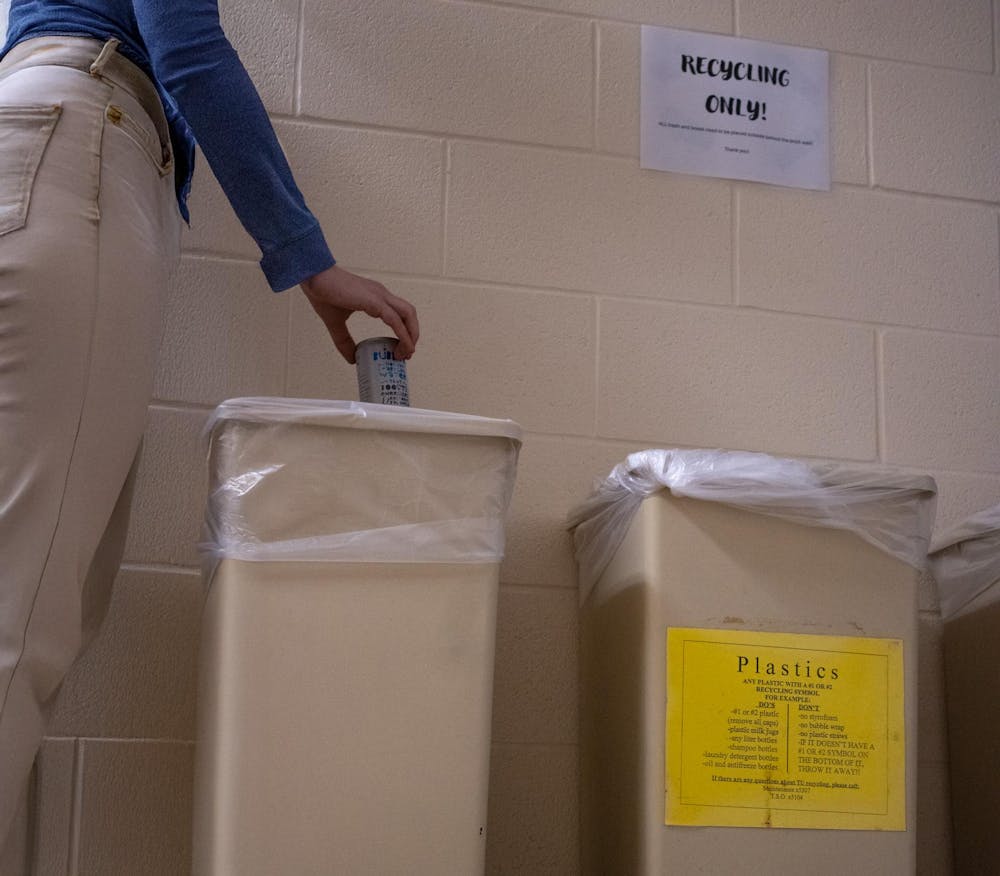Environmentally friendly actions like recycling are a way to cherish what God has created. Our call to sustainability is a biblical command and a way to love one another well.
“As we think about creation and all of its sophistication, from astronomy on down to cellular biology, it’s all just absolutely unbelievably spectacular and intricate and perfect,” Edward Meadors, professor of Biblical studies said. “So (our response as Christians should be) awe and then also responsibility. We have a responsibility to steward, to take care of, to maintain, (and) to utilize productively.”
Since teaching the creation portion of the Foundations of Christian Liberal Arts class the last two fall semesters, Meadors has developed a deeper theological approach to stewardship and environmental care.
Meadors said that when we fail to take care of the world around us, we are hurting God’s evangelical tool of general revelation through creation.
In Genesis 1:28, we are commanded to care for the Earth. Meadors emphasized that taking care of the place that will be home for our descendants is not a political issue. We are called to be caretakers and should be confident in the stewardship of God’s gifts, not fearing a supposed “guilt by association” with other groups.
Not only should we be respectful of the Earth for God’s sake, but we should also come alongside those who are working to make it beautiful.
Students have the opportunity to recycle in their dorms as well as several other buildings around campus. For these systems to be successful, people need to honor the rules that come with them.
Kerry Shanebrook, superintendent of grounds at Taylor, shared that it can be hard to get better results if people do not follow the expectations.
“Environmental sciences have tried for quite a while to get better results,” Shanebrook said. “They've done different studies, and they've had competitions, and that sort of thing. The problem we’re finding out, especially at Boren, is that when we've tried, we've tried breaking down different things, but students don't really pay attention to the signs.”
The groundskeepers do not have time to spend sorting through the recycling, so when these receptacles are contaminated, it all goes to the landfill.
Another thing that makes these jobs more difficult is when people litter or stack their trash outside in heaping piles. Not only does this lose aesthetic value, but it also creates hazards for the people who collect it.
Shanebrook shared that many of the outdoor trash barrels end up overstuffed which makes a mess and eats up more time. Near the summer months when the doors of the trash barrels are stuck open from the trash, it invites bees — which several of the groundskeepers are allergic to.
When people follow the trash and recycling expectations in their respective dorms, this helps to speed the process along for those collecting it.
Although It can be disheartening for some students when people recycle incorrectly and contaminate what we are trying to do, this is no excuse to stop. Instead, it should be is an invitation to promote better education and communication regarding sustainability.
Michael Guebert, professor of geology and environmental science, said that many Christians have taken the role of being “in dominion of” as meaning “in domination of.”
People have used the Earth, seeking to take what they can from it, not what they can give back. While God has put us in charge of the Earth for the time being, it is not ours, it is His.
We are not owners. Rather, Wwe are caretakers and stewards, and who we have been placed where we are for eternal reasons greater than ourselves. We have a responsibility to care for the Earth in a way where we meet our needs but make it a place where others can meet theirs as well.
“So, caring for creation is not just for our own personal or even just our human needs, but it's for all of creation. Because God created it all,” said Guebert. “He's restoring it and redeeming it all through the blood on the cross, all things will be coming back to him. So with that responsibility in mind, it isn't just about us going to heaven, but everything being restored.”




